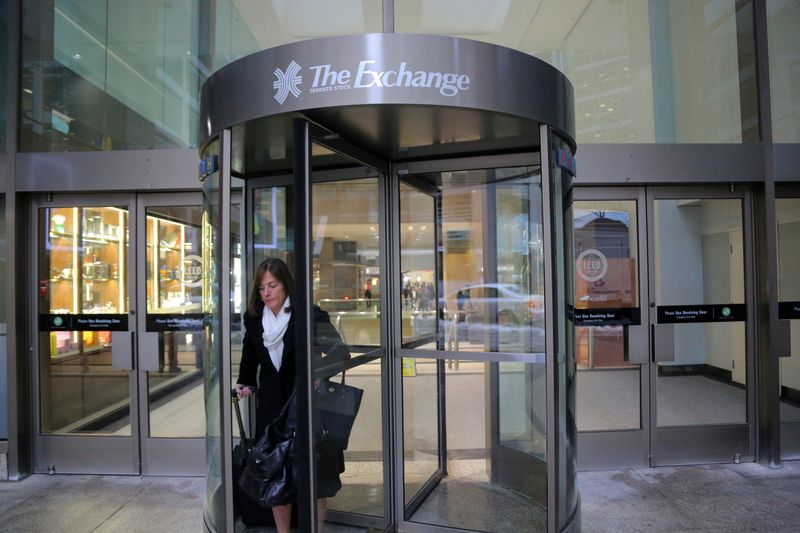By Bansari Mayur Kamdar
(Reuters) - Canada's resource-heavy main stock index fell on Friday and was set to end the week lower, as energy stocks posted steep weekly losses, while fears of an aggressive policy tightening path by central banks weighed on global sentiment.
At 10:13 a.m. ET (14:13 GMT), the Toronto Stock Exchange's S&P/TSX composite index was down 15.14 points, or 0.08%, at 19,561.9.
The index took cues from the global markets as U.S. and European stocks declined after stronger-than-expected U.S. jobs data fuelled expectations for a 75-basis-point rate hike at the Federal Reserve's September meeting.
Meanwhile, Canada's economy unexpectedly lost jobs for the second month in a row in July after a year-long boom, but analysts predicted that this would not stop the Bank of Canada from hiking interest rates to fight inflation.
"While today's figures muddy the waters further for policymakers, the Bank of Canada will likely focus on the historic low unemployment rate and still strong wage growth to justify another non-standard rate hike at its next meeting," said Andrew Grantham, senior economist at CIBC Capital Markets.
The Canadian central bank raised rates by a hefty 100 basis-points last month in a bid to tackle soaring prices and said more hikes would be needed.
Weighing on the index, the rate-sensitive technology stocks fell 0.7%.
The materials sector, which includes precious and base metals miners and fertilizer companies, lost 0.3% as gold futures fell 1.0% to $1,769.9 an ounce. [GOL/]
The resource-heavy Toronto benchmark index was set to end the week 0.8% lower dragged down by an 8.1% weekly drop in energy stocks, as oil prices pulled back on concerns over a possible recession and a fall in fuel demand.

Among individual movers, Canopy Growth (NASDAQ:CGC) Corp slumped 6.8% on posting another core loss, denting investor hopes that the cannabis producer would turn profitable anytime soon.
TC Energy (NYSE:TRP) Corp fell 4.8% after saying on Thursday it had struck a deal with a Mexican state utility to develop a $4.5 billion natural gas pipeline.